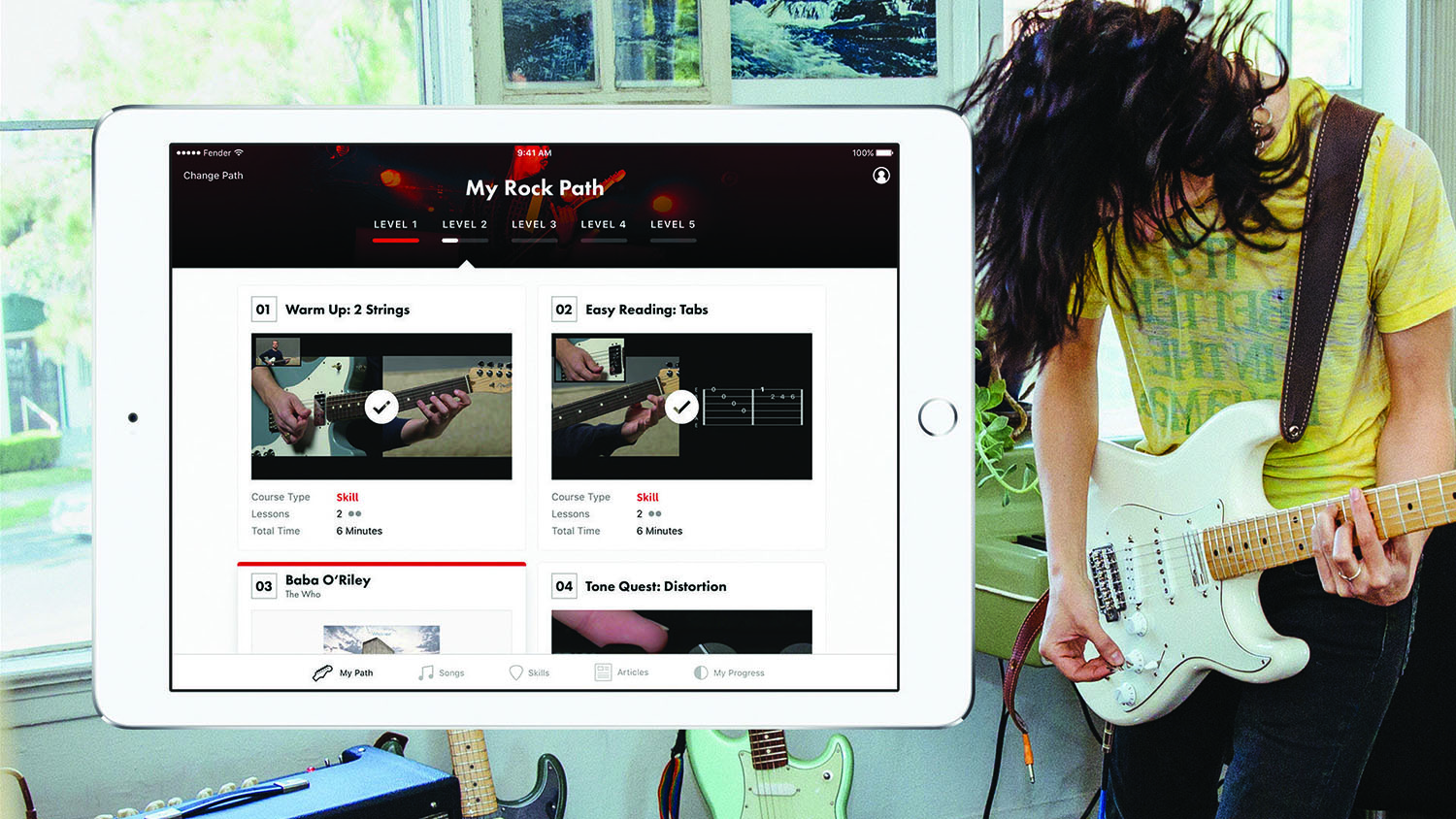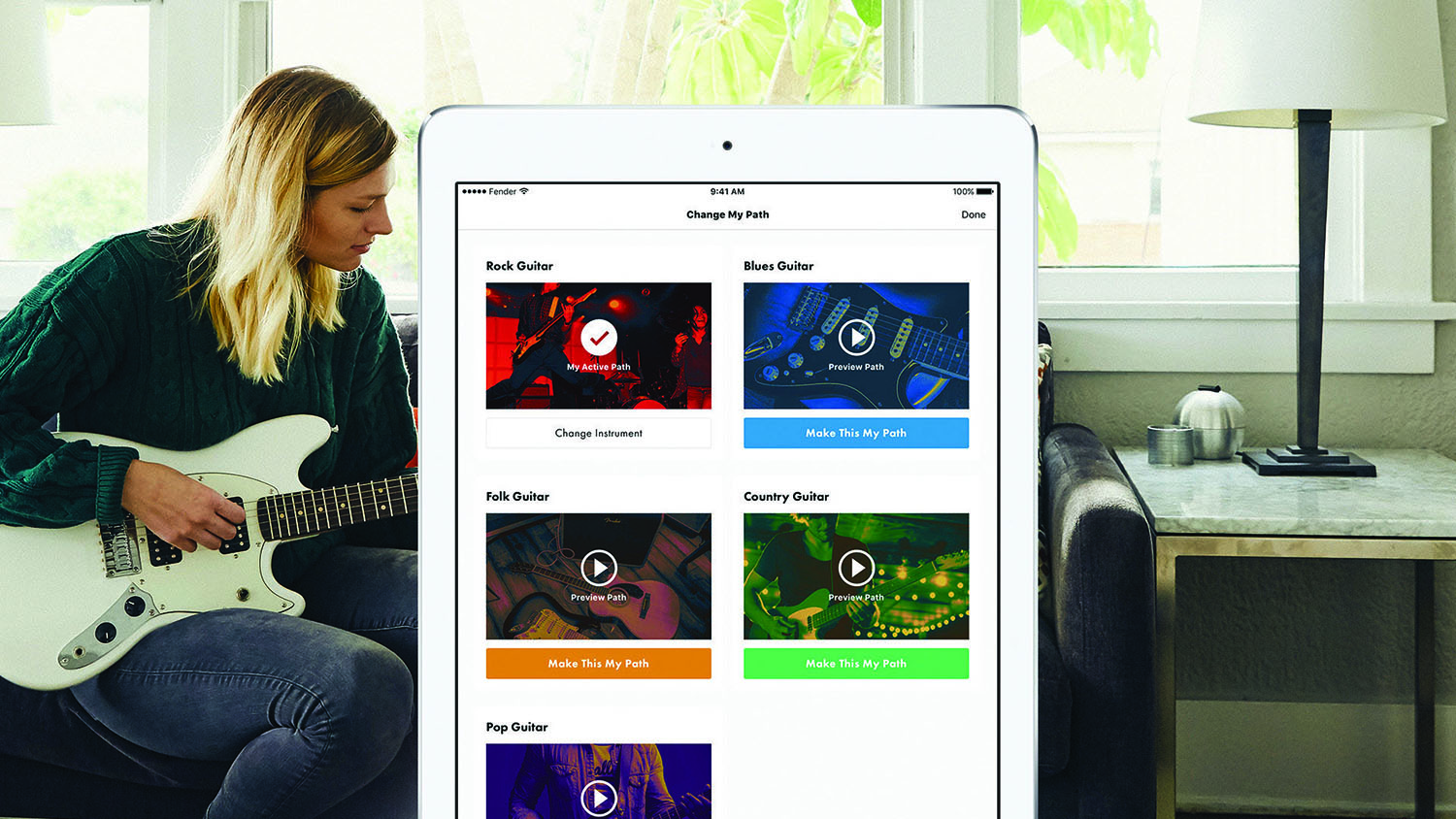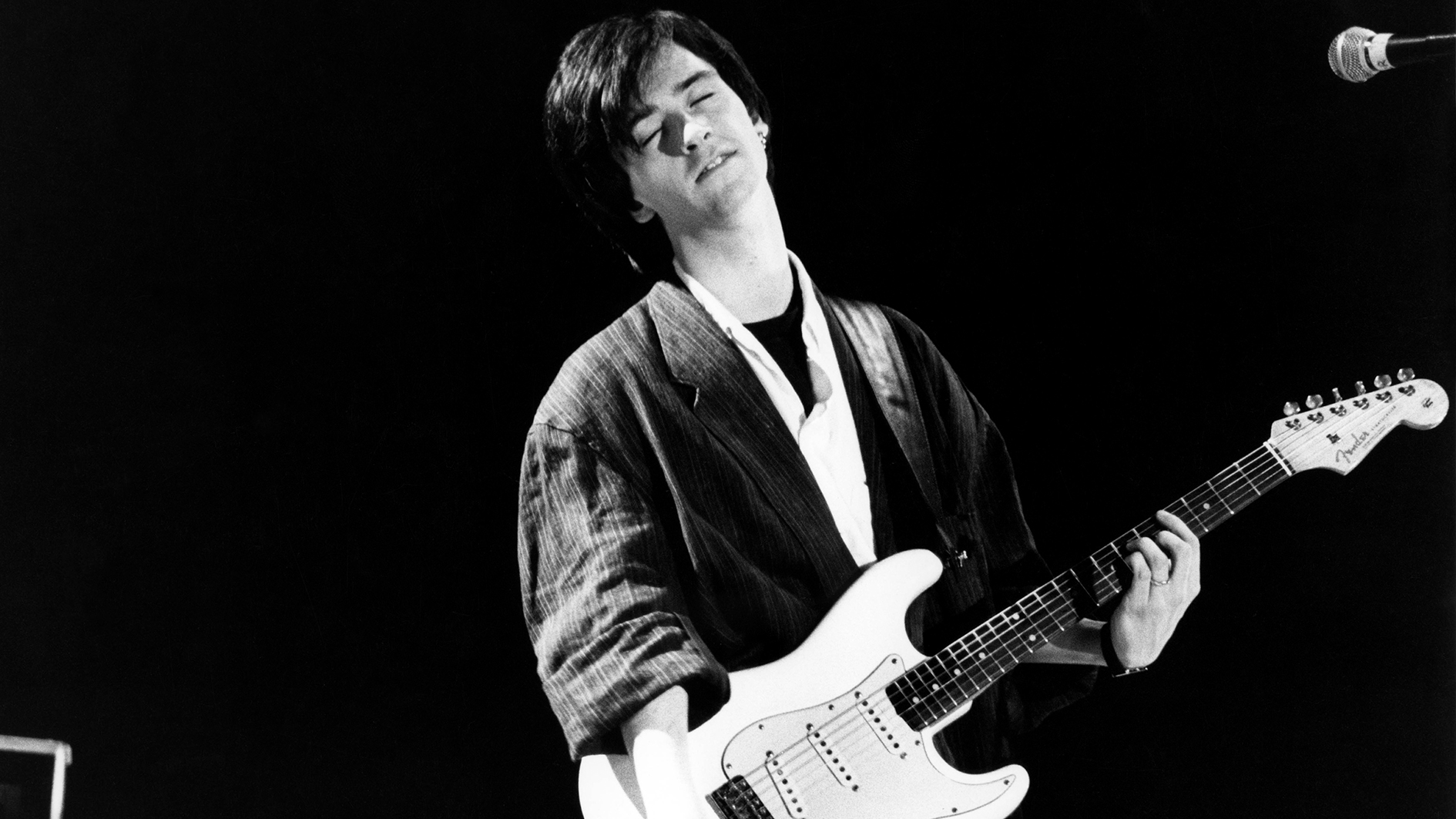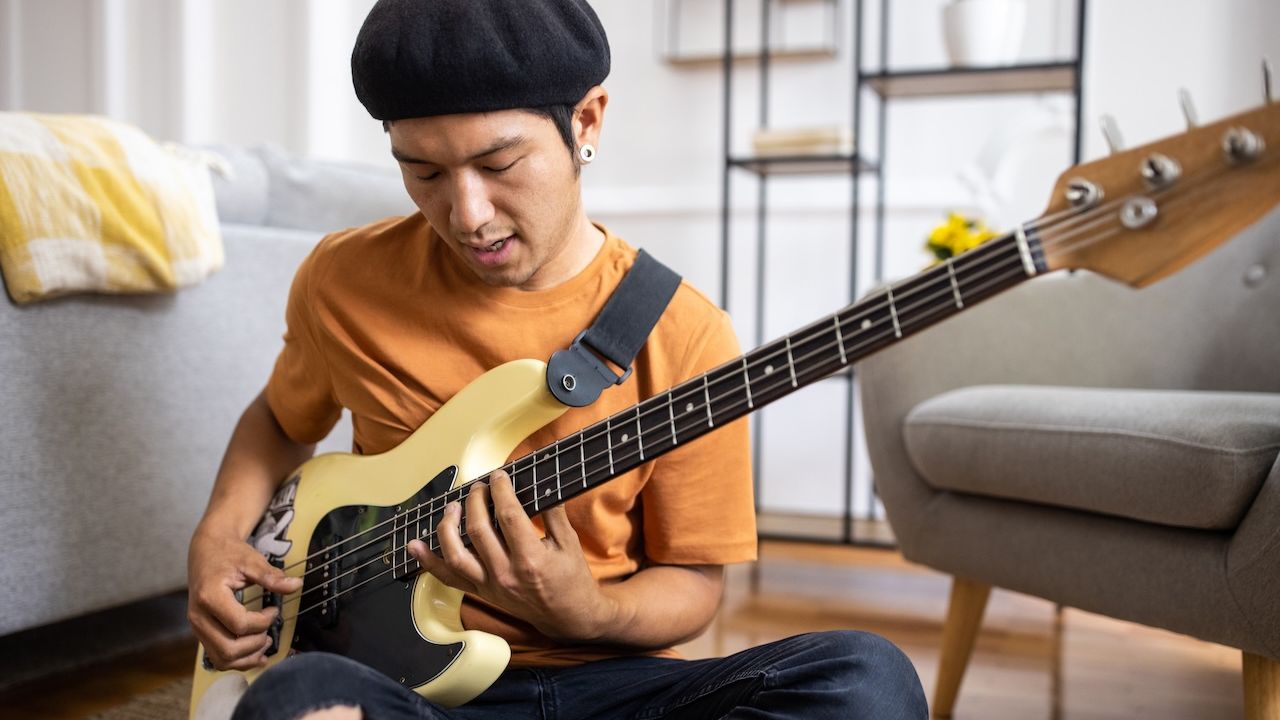The Fender Play app encourages new guitarists to truly fall in love with playing guitar

A universally acknowledged factor for the survival of the guitar industry is that a constant flow of new players is necessary for the industry to continue to thrive and grow. But while statistics show that an impressive number of people are still picking up the guitar to learn how to play, about 90 percent of those potential guitarists lose interest in less than a year and quit.
The real challenge is not getting people to pick up the guitar but rather to stick with it and become lifetime players.
Fender has taken a bold and ambitious approach to turning those numbers around with the Fender Play app, which the company introduced in July 2017 to widespread acclaim. Developed over several years with considerable assistance from music educators as well as the developers of successful education apps for other endeavors, Fender Play allows users to choose their own path, including the songs, genres and instruments they want to play, learn at their own pace and track their progress. Bite-sized video lessons enable users to comprehend and master skills very quickly, and most users are able to play their first riffs within the first 30 minutes.
- Find out more: read our Fender Play review
- Check out the best Fender Play deals online right now
“With Fender Play anyone can pick up a guitar and start learning,” says Fender Digital General Manager Ethan Kaplan. “You don’t have to drive somewhere to take a lesson or have someone come to your home, which is very convenient, but it’s also a good supplement to lessons. Most people view lessons as a chore, but with Fender Play we’re promoting playing guitar as a fun lifestyle, which makes it a lot easier to keep people interested in playing.”
The effort that went into Fender Play was extensive. Mary Keenan, previously with Leapfrog and boasting an extensive background in online and digital education, assembled a diverse group of counsellors from the USC School of Music, UCLA, Cal State Fullerton, Musicians Institute, the Berklee School of Music and more to help develop the app’s curriculum.
“We also took a close look at trends in online learning as well as educational strategies,” says Kaplan, “like achievement-based learning and micro-based lessons, which are small lessons that are much more effective than longer lessons. We also got input from instructors that we hired to provide the on-camera content.”
Kaplan says that extensive preliminary testing was done to determine what was most effective and what wasn’t. Even Fender employees who never played guitar before, like Keenan, tried out the app to see how well it worked.

“We shot a couple of pilot lessons,” says Kaplan. “Then we tested them on a variety of people from different backgrounds and who were interested in different styles to see how effective they were. We even tested camera angles in sort of a blind ‘Pepsi challenge’ way in conference rooms here, watching as people learned. We wanted to see how people responded to the content and what they responded to. We used that to develop the set and the overhead camera angles, which have proven to be very effective. Mary was the perfect example of how well Fender Play works. She’s now performed onstage with a band at our company shows. At lot of staff at Fender who didn’t know how to play also came in and learned how to play using the product.”
Fender has reached outside the usual musical instrument industry avenues to get the word out about Fender Play, but anyone who buys just about any Fender product—from a guitar or amp to accessories—will also be informed via material included with those products. Fender Play is available for a free 14-day trial, and users can continue with subscriptions available for $9.99 a month, $49.99 for six months or $89.99 for 12 months.
Users start by choosing the instrument (currently acoustic guitar, electric guitar and ukulele, with bass coming soon) and genre (rock, pop, country, blues and folk, with metal and R&B coming soon) and then the song they want to learn. Instructor-driven video lessons guide users through the learning process, and basic info on tuning a guitar and changing strings is provided for users who don’t already know these things. Material includes a variety of beloved classic songs as well as an impressive selection of new music.
“Foster the People’s ‘Pumped Up Kicks’ is the number one song that most Fender Play users start with,” says Kaplan. “Everybody goes right to that song to learn how to play. Some classic rock songs are also very popular. We wanted to have new songs that people are hearing on the radio today as well as the classic songs that many people still want to play. When we look at things like the stages at Coachella, we can see that the guitar is skewing younger and it’s also skewing more female in different genres. It’s a matter of finding the people who want to play and we’re trying to find where that community of people hangs out.”
One big advantage of Fender Play is that the app also provides access to an online community of other Fender Play users as well as the app’s instructors and Fender staff. Users can post videos of their performances to seek feedback and tips.
“We’re doing two Facebook Live video streams per week,” says Kaplan. “We go over tips and tricks or we will have artist interviews where they talk about how they learned to play, how to play their songs that are featured on Fender Play, how they wrote them and what techniques they used.
“We want people to have a lot of fun,” he continues. “Learning guitar shouldn’t be stressful or a chore. It’s a lifestyle and relieves stress, and it’s fun to do with your family or in front of other people. We try to draw people out and into a communal sharing mindset. People will film themselves playing and get feedback. That’s really empowering, especially for people who have never played guitar before.”
For more information, visit fender.com/play.
Get The Pick Newsletter
All the latest guitar news, interviews, lessons, reviews, deals and more, direct to your inbox!
Chris is the co-author of Eruption - Conversations with Eddie Van Halen. He is a 40-year music industry veteran who started at Boardwalk Entertainment (Joan Jett, Night Ranger) and Roland US before becoming a guitar journalist in 1991. He has interviewed more than 600 artists, written more than 1,400 product reviews and contributed to Jeff Beck’s Beck 01: Hot Rods and Rock & Roll and Eric Clapton’s Six String Stories.










